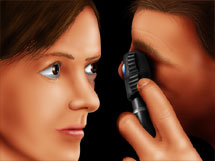Well it’s been a while since I’ve written anything. It’s not because I don’t want to. I just haven’t had much to write about lately since I’m on summer vacation. I have had a couple of posts uploaded to The Differential. Those posts will probably eventually end up here on my personal blog. But for now, they are exclusively at Medscape.
About a week and a half ago I received a packet from my school. I eagerly opened it and found a letter officially congratulating me on completing my first year. It also had a tentative schedule and list of required textbooks for my second year.
I had been wondering if I was ever going to get such a letter. There were maybe 3 classes where the teacher sent us a congratulatory note that we passed a certain class. But the other classes offered no such satisfaction. I assumed I passed them. I’d hope that if I failed a class, the school would get to me a lot sooner than the end of July (especially since our finals were done by the beginning of June).
Anyways, I am finally (officially) a second year. And that, in itself, is very exciting. I’m a quarter of the way done. It’s strange to think that this time next year I will be walking around the wards as a third year doing all the things I watched them do during freshman wards experience. They seem so far off.
But I better not get ahead of myself. I still have to take the USMLE Step 1 exam after second year. Well, I actually have to get through second year first.
Hopefully I’ll be able to write with more frequency as the school year approaches. Sophomore orientation is September 2!






